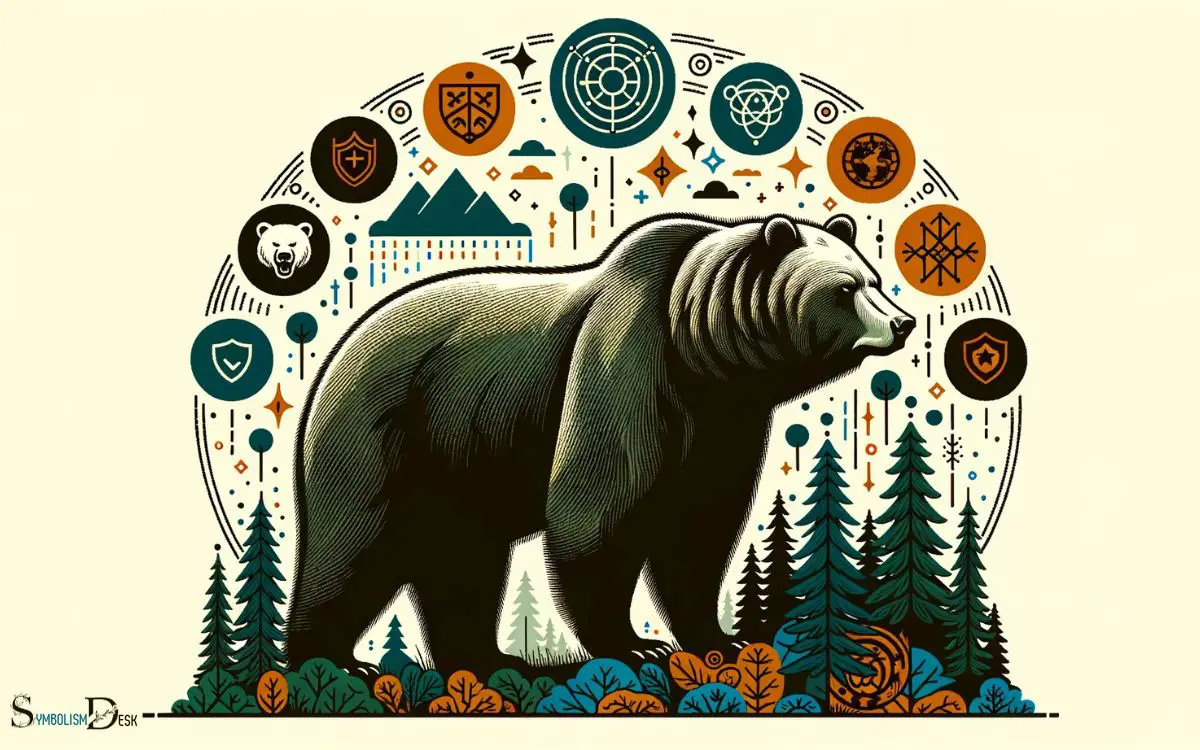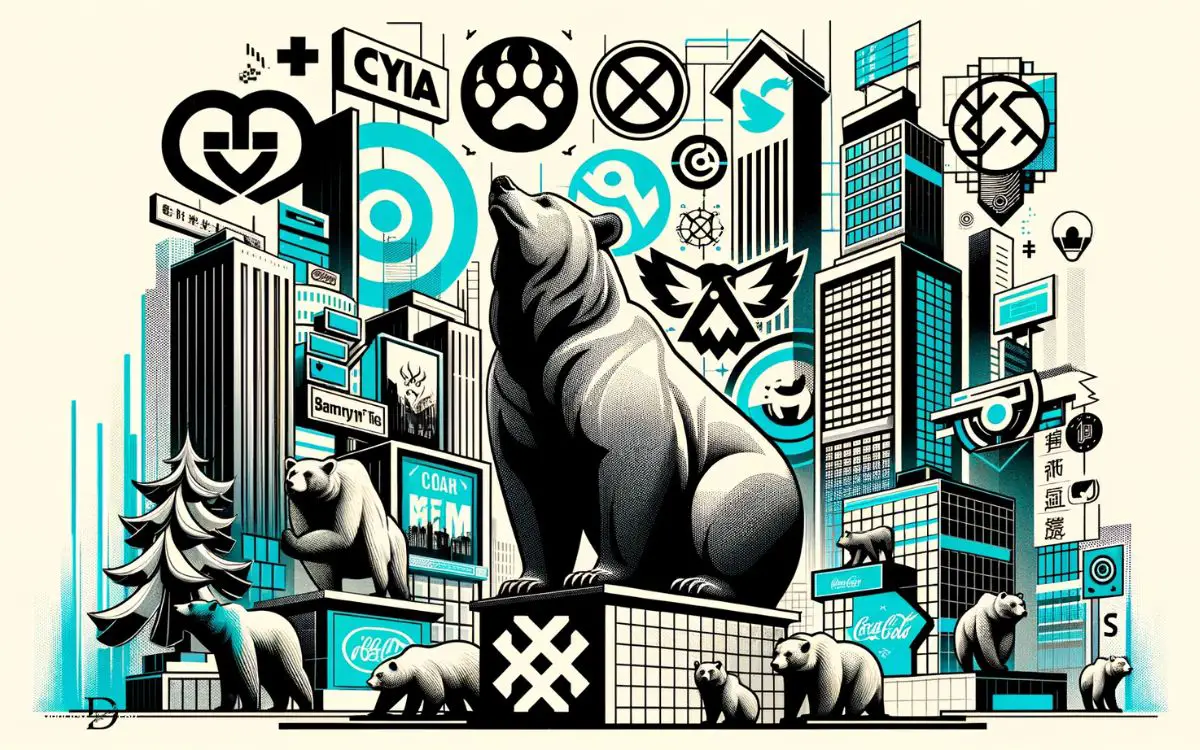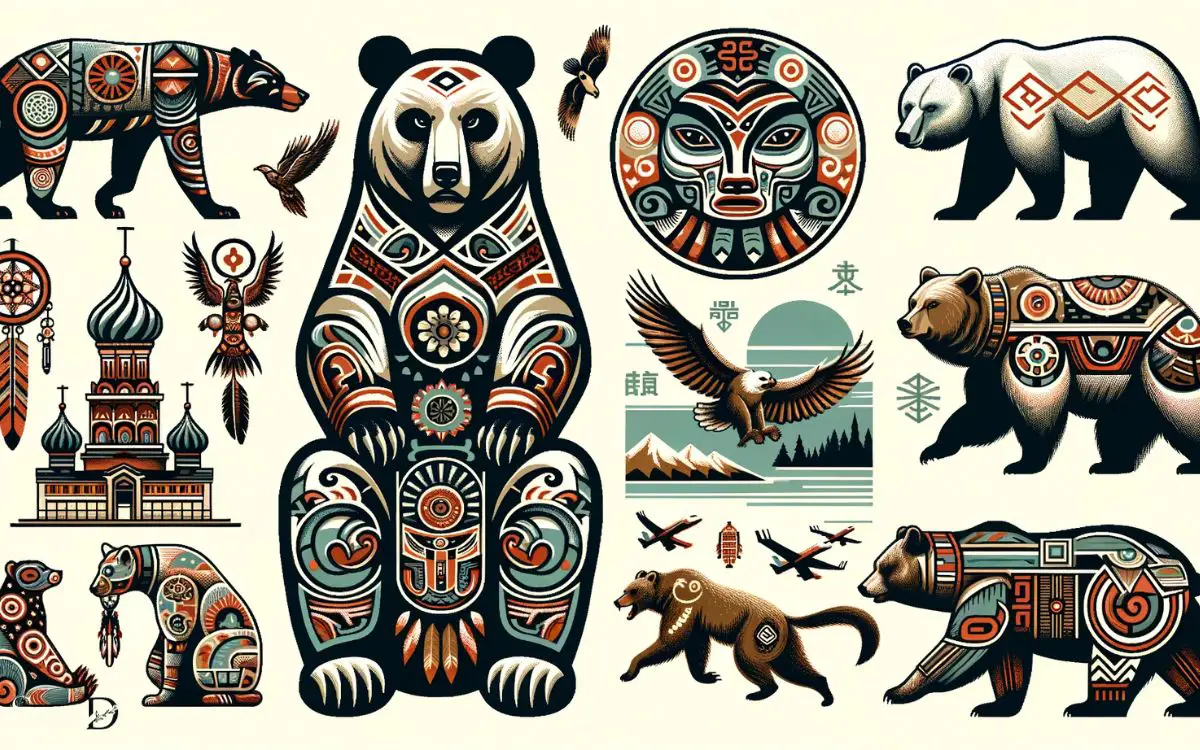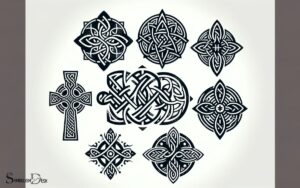What Is the Symbolic Meaning of a Bear? Strength!
The bear symbolizes strength, courage, protection, healing, wisdom, and the power of transformation. These attributes are inspired by the bear’s characteristics observed in nature and its role in various cultural myths and traditions.
The bear has been a symbol of significant virtues across different cultures and contexts.
Here’s a breakdown of its symbolic meanings:
- Strength and Power: Bears are physically impressive animals known for their formidable strength.
- Courage: Their willingness to stand against adversity makes them a symbol of bravery.
- Protection: Bears are fiercely protective of their young, reflecting the theme of guardianship.
- Healing: In some traditions, bears are seen as a symbol of healing and inner knowledge.
- Wisdom: Their behavior during hibernation is often associated with deep introspection and wisdom.
- Transformation: The bear’s cycle of hibernation and renewal represents transformation and the cycle of life.
For example, in Native American culture, the bear is often revered as a spirit guide and is associated with warriors and protectors due to its strength and courage.
The bear’s symbolism transcends cultures, embodying virtues of resilience and introspection revered in storytelling and spiritual beliefs.

Key Takeaway
7 Cultures: Symbolic Meaning of a Bear
| Culture/Region | Symbolic Meaning of a Bear |
|---|---|
| Native American | Strength, courage, leadership, and self-knowledge |
| Celtic | Warrior spirit, protection, and wisdom |
| Norse | Bravery, strength, and valor |
| Japanese | Good fortune and prosperity |
| Siberian | Master of the forest, ancestor, and god |
| Chinese | Strength, courage, and a long life |
| Greek/Roman | Power, motherhood, and cunning |
The Bear as a Symbol of Strength

The bear is often regarded as a symbol of strength due to its powerful physical attributes and formidable presence in various cultures and mythologies worldwide.
In many Native American traditions, the bear is seen as a powerful being with supernatural abilities and is often associated with leadership, protection, and physical strength.
Additionally, in Nordic folklore, the bear symbolizes courage, warrior spirit, and victory in battle, further emphasizing its representation of strength.
The bear’s hulking frame, sharp claws, and impressive speed make it a formidable creature in the wild, adding to its symbolic significance as a creature embodying strength.
Its ability to hibernate and emerge revitalized also contributes to its association with endurance and resilience, further solidifying its status as a potent symbol of strength in various cultural contexts.
The Bear as a Symbol of Courage

The bear has long been associated with courage and bravery in various cultures and mythologies. Its fearless nature and willingness to confront challenges head-on make it a powerful symbol of courage.
Whether in ancient stories or contemporary interpretations, the bear embodies the spirit of bravery and fearlessness, making it an enduring symbol of courage.
Bear as Bravery Symbol
A bear is often regarded as a symbol of bravery and courage due to its powerful and fearless nature.
Throughout history and across various cultures, the bear has been revered as a creature embodying strength and bravery. Its ability to fearlessly protect its territory and young ones has established it as a symbol of courage.
In many ancient societies, warriors would emulate the bear’s qualities to instill bravery in themselves before battle. The bear’s fearless demeanor in the face of danger has led to its symbolic association with bravery.
This symbolism is often employed in various contexts, from military insignias to sports team mascots, to evoke a sense of courage and fortitude. This symbolism is deeply rooted in the human psyche, drawing upon ancient associations to emphasize qualities of power, resilience, and resolve. For instance, the symbolic meaning of triangles is often linked to concepts of strength and balance, which parallels the enduring traits these symbols aim to represent. Whether displayed in a logo or a coat of arms, such imagery reinforces an emotional connection that transcends its visual elements.
The bear serves as a timeless representation of bravery and resilience.
Bear’s Fearless Representation
Bear’s embodiment of fearlessness, rooted in its powerful and fearless nature, establishes it as a symbol of courage across cultures and history.
The bear’s fearless representation as a symbol of courage is evident in various ways:
- Mythology and Folklore: In many ancient cultures, the bear is revered for its bravery and courage, often depicted as a fearless and formidable creature.
- Native American Symbolism: Among Native American tribes, the bear symbolizes courage, strength, and protection. It is often associated with warriors and seen as a powerful ally in battle.
- Modern Usage: Even in modern contexts, the bear is used as a symbol of courage, often representing bravery in the face of adversity or standing strong in the midst of challenges.
The bear’s fearless nature continues to inspire and symbolize courage in diverse cultural and historical contexts.
Courage in Bear
Symbolizing bravery and valor, the bear embodies courage across various cultural and historical contexts. In many indigenous cultures, the bear is revered for its fearlessness and strength, often seen as a symbol of courage in the face of adversity.
The bear’s ability to protect its young and defend its territory is a testament to its courageous nature.
Throughout history, the bear has been associated with warriors and leaders who demonstrate bravery and resilience. Its representation in myths and folklore as a formidable and courageous creature further solidifies its symbolic significance.
The bear’s unwavering courage serves as a source of inspiration for those seeking inner strength and fortitude.
This courage is a defining aspect of the bear’s symbolic meaning, which seamlessly leads to its role as a symbol of protection.
The Bear as a Symbol of Protection

The bear’s symbolism as a protector is deeply rooted in various cultural and spiritual traditions worldwide.
This powerful representation of protection is evident in numerous beliefs and practices, including:
Native American Cultures:
- Many Native American tribes view the bear as a guardian spirit, embodying strength and defense.
- Bears are often associated with the protection of the land and its inhabitants, symbolizing a powerful force that safeguards the natural world.
- In some Native American stories and rituals, bears are revered as protectors of warriors and hunters, guiding and shielding them from harm.
This enduring symbolism has contributed to the bear’s reputation as a symbol of protection, inspiring reverence and admiration across diverse cultures. This symbolic significance seamlessly transitions into the subsequent section about ‘the bear as a symbol of healing’.
The Bear as a Symbol of Healing
In various cultural and spiritual traditions worldwide, the bear is symbolically associated with healing, representing a potent force of restoration and renewal.
The bear’s connection to healing is deeply rooted in many indigenous cultures, where it is revered as a powerful spirit animal with the ability to impart physical, emotional, and spiritual healing.
The bear’s hibernation cycle is often seen as a metaphor for the healing process, as it withdraws into solitude and emerges rejuvenated.
In Native American traditions, the bear symbolizes strength, introspection, and the power of healing. Shamans and healers invoke the bear spirit for guidance and support in their healing practices.
The bear’s resilience, nurturing nature, and deep connection to the earth serve as a profound symbol of transformation and the restoration of balance and well-being.
The Bear as a Symbol of Wisdom
Associated with discernment and knowledge, the bear embodies wisdom, drawing from its deep connection to nature and its intrinsic understanding of the rhythms of life.
- The bear symbolizes introspection and inner knowing, encouraging individuals to seek wisdom from within.
- In various cultures, the bear is revered for its ability to hibernate, representing the importance of rest and reflection in gaining wisdom.
- The bear’s longevity and resilience in the face of adversity serve as a powerful symbol of wisdom, teaching us to endure life’s challenges with grace and strength.
The bear’s association with wisdom goes beyond mere intelligence, encompassing a deeper understanding of the world and the ability to navigate life’s complexities.
This wisdom, rooted in the bear’s essence, resonates deeply with those who seek to comprehend the intricacies of existence.
As we explore the bear’s symbolism of wisdom, it naturally leads us to consider its representation as a symbol of intuition.
The Bear as a Symbol of Intuition
Embodying a keen instinct and deep understanding, the bear symbolizes intuition as a powerful guide in navigating life’s complexities.
The bear’s ability to sense danger, find food, and protect its young speaks to its intuitive nature. In many cultures, the bear is revered for its connection to the spiritual world and its ability to provide guidance in times of uncertainty.
The following table illustrates the symbolic representation of the bear’s intuition:
| Aspect of Intuition | Symbolism |
|---|---|
| Insight | Wisdom |
| Awareness | Sensitivity |
| Guidance | Instinct |
| Trust | Clarity |
| Adaptability | Flexibility |
Understanding the bear as a symbol of intuition encourages individuals to trust their inner feelings and instincts when facing life’s challenges. This intuitive understanding seamlessly leads to the bear’s representation as a symbol of transformation.
The Bear as a Symbol of Transformation
The bear’s embodiment of intuition seamlessly leads to its representation as a symbol of transformation. The bear, revered in many cultures for its transformative symbolism, is often associated with profound change and personal growth.
This symbolism manifests in various ways:
- Hibernation: The bear’s hibernation during winter symbolizes a period of introspection and renewal, representing the potential for inner transformation and rebirth.
- Adaptability: The bear’s ability to adapt to different environments reflects the transformative power of flexibility and resilience in the face of challenges.
- Life Cycle: From birth to maturity, the bear’s life cycle symbolizes the transformative journey from innocence and dependence to strength and independence, offering lessons in personal development and evolution.
The bear’s representation as a symbol of transformation serves as a reminder of the innate capacity for change and the potential for personal metamorphosis.
Conclusion
The symbolic meaning of a bear encompasses strength, courage, protection, healing, wisdom, intuition, and transformation.
As the saying goes, ‘The bear has the ability to teach us about the cycles of life, death, and rebirth. It reminds us to take time for introspection and to trust our instincts.’
The bear serves as a powerful symbol in various cultures and holds significant meaning in the realm of symbolism.






